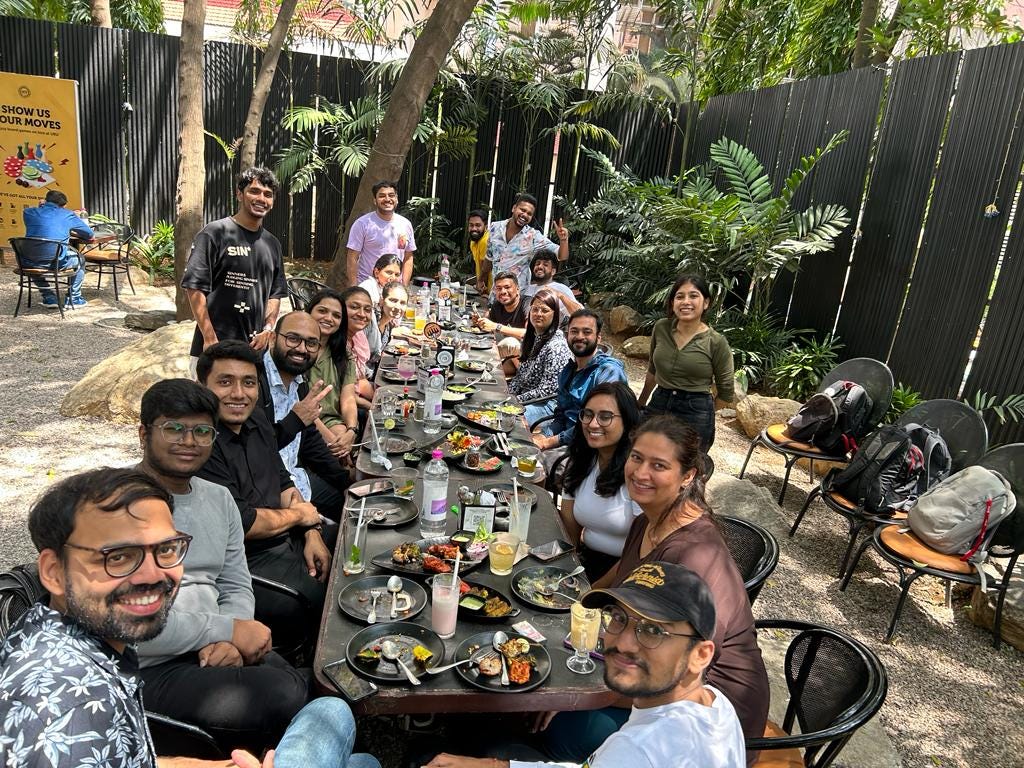Stoa Digest #109: 👀 Look Around 👀
Cause if you deeply observe, everything is your teacher
Hey there, Stoans,
Sir Arthur Conan Doyle, the author of Sherlock Holmes, if around today would have likely been a serial entrepreneur in the consumer space. His keen sense of observation is the foundation of what he put into his character, a world-class detective, whose foundation was; to observe.
If you’ve watched or read Sherlock Holmes, you’re used to seeing him come up with amazing theories to solve crimes, most of which (in the story) are spot on. The basis of these theories is solid observations he makes, that often the police or his comrades easily miss.
This is also a common trait I’ve seen among the best entrepreneurs and operators in the business ecosystem. Their keen sense of observation is what leads them to ask the right questions, spot trends and rapidly ideate.
Here are a few things to pay attention to and observe, to spot trends:
Talk to teens, young folks. Whether it's on online forums, WhatsApp groups, cousins, etc. Observe their consumption and spending habits. Someone once said young folks are the catalyst for culture. And they’re not wrong.
They're consuming memes and media you're likely not exposed to, and speaking in ways that sound foreign. What they care about today, will soon bubble into something larger tomorrow. Video games, when they were first released, were deemed to be trivial. But today, they’ve grown into a multi-billion dollar industry.
Teens are the influencers of their households.
What are people doing in spite of governments or institutions not allowing it? Avoiding taxes, buying drugs, speaking freely, etc. What are the motivations for those behaviours? How would you solve these motivations legally?
Growth in the ayurvedic industry paved the way for cannabis businesses to emerge in the last few years, within the legal confinements of law, in India.
What generates complaints? Where is their pain and annoyance? Where does the pain point seem to be compounding on itself?
Look at agents in an RTO office, their job isn’t a real job. These are individuals that realised that people don’t like waiting in lines, people suck at filling forms and the entire process is so painful that people would be willing to part with money to save on time and effort.
What will acquire more scarcity value and pricing power as the price of a product drops?
For example, if content is abundant, curation becomes a scarce resource.
If sensors to collect data are abundant, data analysis becomes a scarce resource.
There are simpler questions to ask, what are new hobbies your friends have picked up? Where are your friends travelling to? What are some things people hate doing but do anyways? (Go to banks)
So keep an eye out, pay attention to things, and take a moment to observe.
“The world is full of obvious things which nobody by any chance ever observes.” - Sir Arthur Conan Doyle.
~ Shelton, Team Stoa
🫡 People of Stoa 🫡
This week, we’ve got Skanda from C12 sharing his story on transitioning from a finance role to founding his own agency! 🔥
🔥 Community Sneak Peak 🔥
Discord Cafe sessions are back! We’ve got an exclusive founder’s AMA Session with Aditya and Raj tomorrow night. 💡
Wednesday, 2nd Aug, 9PM onwards
🐝 Community Buzz 🐝
The Bangalore community met over the weekend with fellows from C11, C12, and C13 attending their learning sessions together followed by a fun lunch! 🍴
⏯ For Stoans by Stoans ⏯
A new AI bot by our co-founder Raj that gives your feedback on your Linkedin post draft.
Think ChatGPT for Gamification. A new product by Lama Fatima from C10.
An interesting blog post on learning from failure.
Here’s a fun challenge to push yourself to read more.
A good read on how instant pot went from being a cult to bankruptcy.
catch ya, later!


